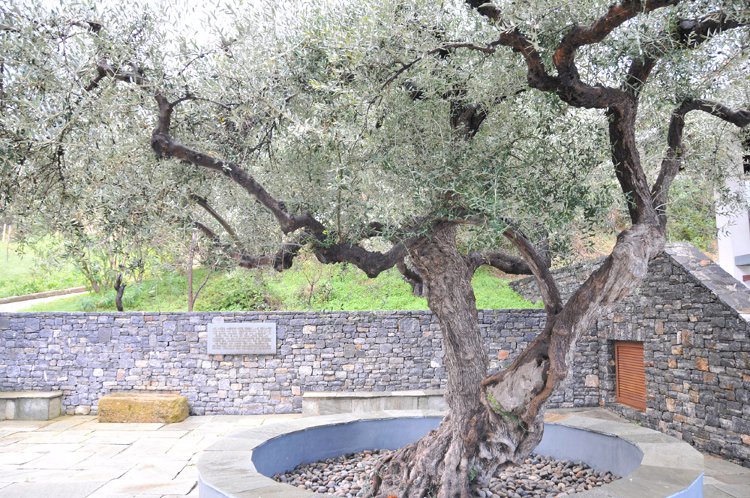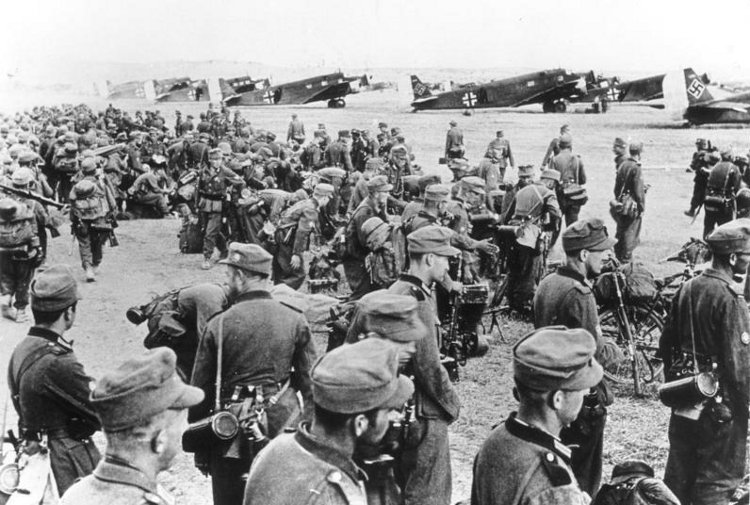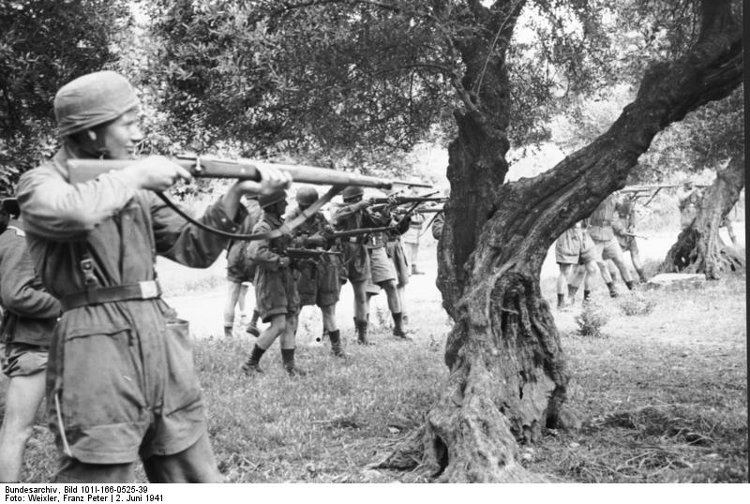Coming next month, one of the most momentous and notorious events in Crete history is celebrated. May 20th, 1941, the skies over this ancient island darkened with the parachutes of thousands of Nazi paratroopers in what was one of the largest airborne invasions in history. The Battle of Crete saw the Third Reich victorious, but not without massive resistance from Cretans and British soldiers stationed there.

Memorial Tree at Maleme – Courtesy the Hellenic Foundation
The loss of some 4500 of Germany’s most elite paratroopers was a staggering blow to Hitler’s “invincible” forces, so much so the Nazi leader vowed to never again attempt such an airborne assault. The remnants of this invasion, the Nazi occupation, still haunt and inspire locals and visitors to this day. On this, the 73rd anniversary of the invasion, villages and cities all around Crete have memorials and events planned.

Map of the German invasion of Crete via Wikipedia
Here are just a few of the notable ones this year – courtesy Hotel Mike:
- 20th of May
– Chania Catherdral 08:00
– Fircas Fortress Flag Raising in the morning 10:00
– Galatas Hill 19:00
- 21st of May
– Keritis Monument Alikianos 12:00
– Maleme Airfield 18:30 * ( * hasn’t been confirmed yet )
- 22nd of May
– Welsh Memorial Maleme
– R.A.F. Maleme
– Maleme German Cemetery
Compared with other Germany military operations of that time frame, the Cretan resistance can only be classified as one of the earliest setbacks imposed on the seemingly invincible Blitzkrieg tactics of the Nazis. As noted, the valiant defense and historically significant resistance came at a very high cost. Since those fateful days Cretans have paid tribute to the valor of those who sacrificed. In villages and in the mountains, the names of combatants are inscribed on monuments, and even on stones and the walls of caves.

German mountain troops prior to their transfer to Crete – Wikipedia
The Battle for Crete cannot be mentioned without noting one of the first Nazi war crimes of WW II. Two days after Crete surrendered to German forces the so-called Kondomari Massacre took place by thrown together firing squad of Fallshirm troopers in reprisal for villagers’ participation in the battle. Under the orders of Fieldmarshal Goering in Berlin, the temporary commander on Crete was order to investigate reprisals. The massacre of male villagers near Malame stands as one of the most ruthless slaughters of unarmed combatants in military history.

A German war photographer captures Nazi paratroopers preparing to open fire on unarmed villagers – courtesy Weixler, Franz Peter